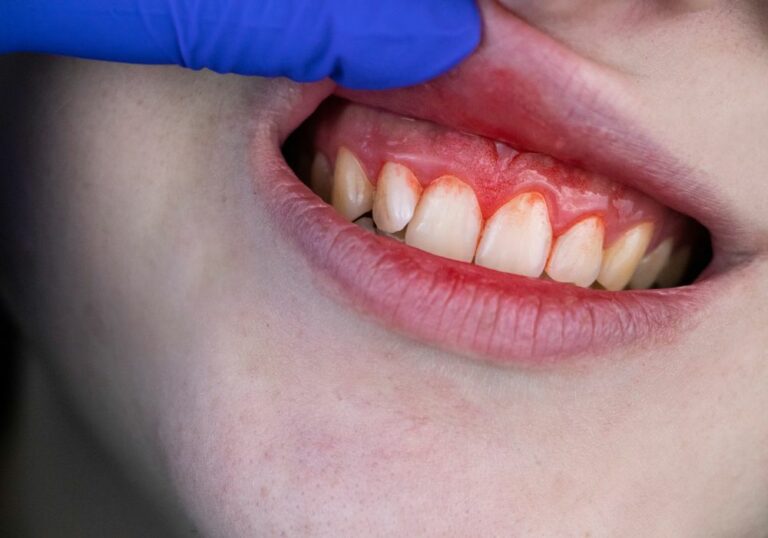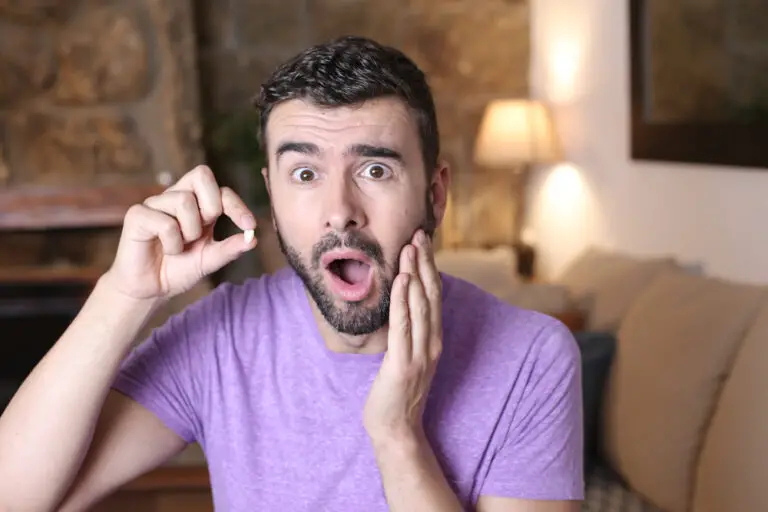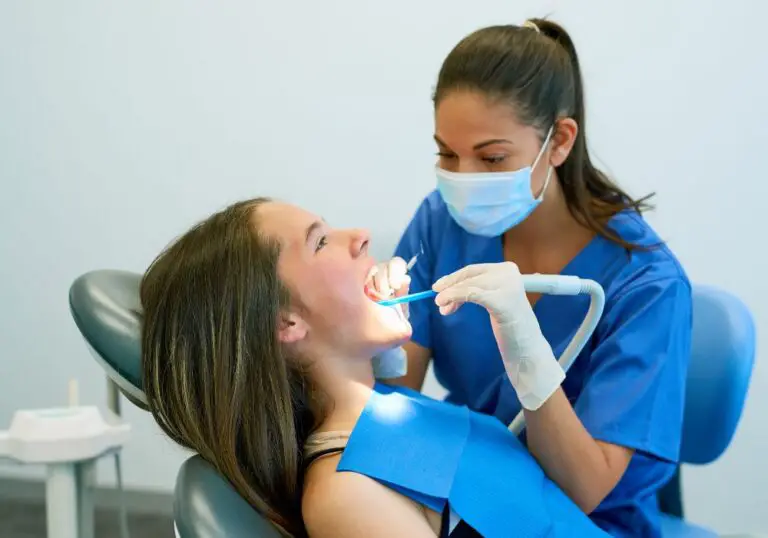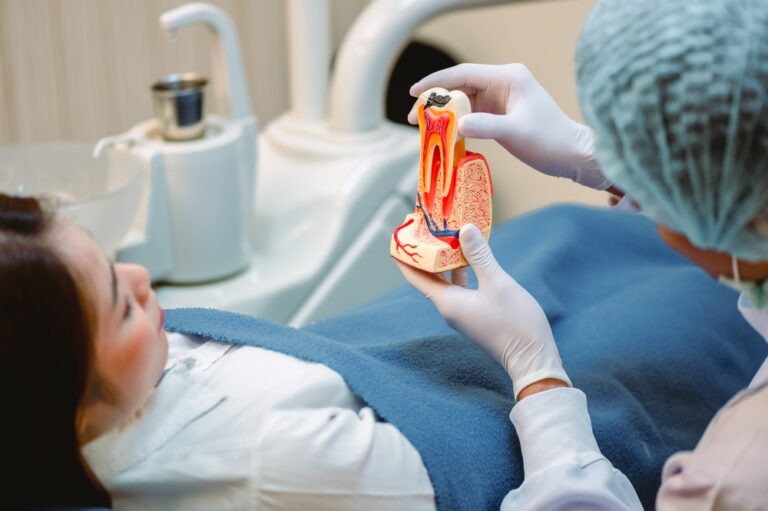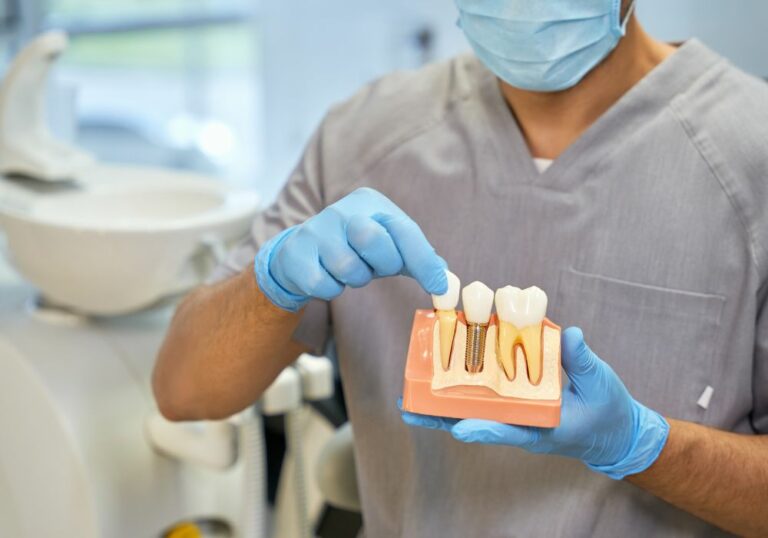Losing teeth is an unfortunate reality many people face as they get older. But how many teeth can you actually lose before it starts severely impacting your life? The short answer is you can get by with as few as 10 remaining teeth if they are well positioned. However, most dentists recommend having at least 20 teeth that are properly distributed to maintain full normal function. Let’s take a deeper look at how missing teeth affects critical things like your ability to eat, speak, and smile.
Impact of tooth loss on eating ability
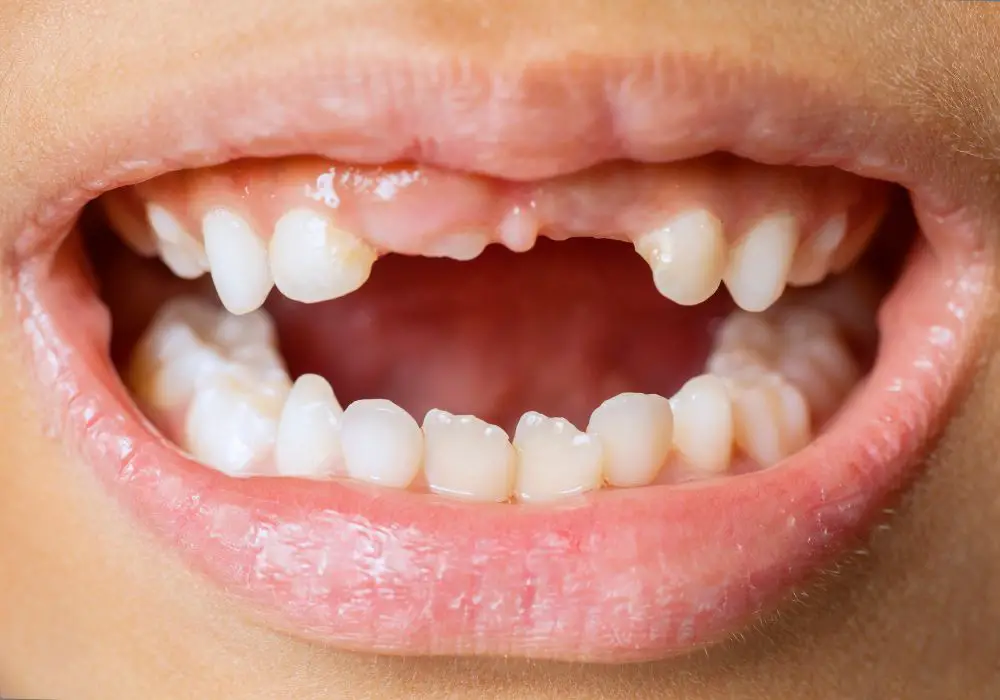
One of the biggest ways losing teeth affects your life is your ability to eat a normal diet. Here is more detail on how missing teeth in different areas of the mouth impacts eating:
Effects of missing front teeth
- Losing 2-4 front teeth – You can still eat most foods but may need to cut harder items into smaller pieces before chewing. Avoid sticky foods that can grab teeth.
- Losing 6 or more front teeth – Extensive loss of front teeth makes biting and tearing off pieces of food very difficult. You will likely need removable dentures to replace missing teeth for eating properly.
- Losing all upper front teeth – Without any upper front teeth it becomes extremely challenging to bite into foods and chew pieces adequately. Dentures are necessary for a normal diet.
Effects of missing back teeth
- Losing a few molars – You can still chew and swallow most foods but may want to avoid very hard or crunchy items that require a lot of grinding force.
- Losing most molars – Missing most of your back teeth severely limits your ability to grind food and properly digest nutrients. You will need to stick to soft, mushy foods cut into small pieces.
- Losing all molars – Without any back teeth, you cannot grind, chew, or break down food at all. You must subsist on a liquid or pureed diet. Dentures are required for any solid food consumption.
Effects of missing combinations of front and back teeth
- Missing teeth on both sides – Becomes very difficult to chew on either side. Ability to break down food greatly reduced. Need dentures and restricted diet.
- Missing teeth on just one side – Can still chew on stronger side but will want to avoid very hard or sticky foods. Don’t overuse good side.
- Missing teeth in random pattern – If teeth are lost sporadically, dietary changes needed based on location. May balance softer vs harder foods.
In summary, to maintain a relatively normal diet with proper chewing function you should have a minimum of about 20 well-positioned teeth. Complete tooth loss requires use of dentures for adequate nutrition.
Impact of tooth loss on speech
Your teeth play an important role in allowing proper pronunciation and enunciation. Here’s more detail on how missing teeth affect speech:
Effects of missing front teeth
- Losing 2-4 front teeth – Minimal impact on speech. Can still pronounce most sounds clearly.
- Missing 6 or more front teeth – The extended gap causes difficulty properly pronouncing sibilants like “s” and “f” sounds. Speech becomes “lispy”.
- Missing all upper front teeth – Lack of upper front teeth makes pronouncing dental consonants like “th” “v” “z” nearly impossible. Speech is very labored and slurred.
Effects of missing back teeth
- Losing a couple molars – Small impact on speech. May have slightly less articulation but most sounds unchanged.
- Missing most molars – Inability to create adequate mouth pressure and flow of air compromises pronunciation of consonants like “t” “p” “k” leading to slurring.
- Losing all molars – Greatly reduced pressure and air flow severely diminishes speech clarity. Sounds are very mumbled and difficult to understand.
Dentures can improve speech deficits from missing teeth, but often speech therapy is needed to correct problems caused by long-term tooth loss. Focus on replacing missing front teeth as those impact speech most.
How tooth loss impacts facial appearance
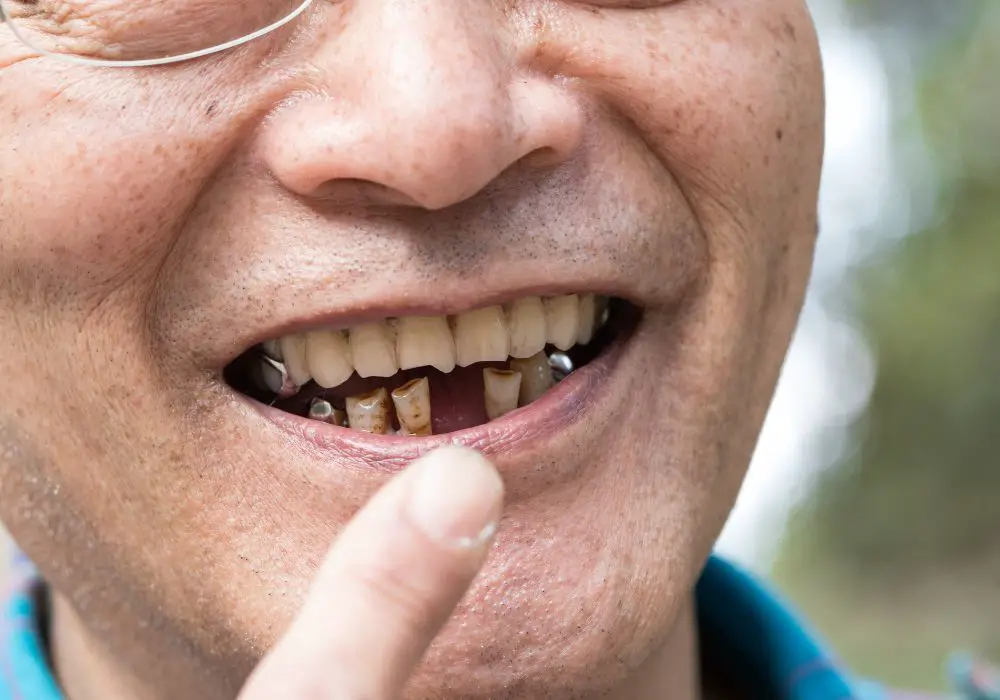
Your teeth play an important role in providing structural support to your face. Losing teeth can negatively impact your facial aesthetics in a few ways:
- Bone loss – Roots of teeth integrate with the jawbone to maintain its strength and shape. When teeth are lost, the bone they supported deteriorates. This causes facial changes like a sunken mouth, jowls and sagging chin.
- Lip support – Front teeth provide crucial support for your lips, shaping your smile. When front teeth are lost, the lips cave in and your smile appears flat and collapsed. Wrinkles around the mouth become more pronounced.
- Alignment issues – Missing molars can change your bite alignment leading to a collapsed bite and asymmetry. Jaw growth may also be affected in children.
- Gummy smile – Losing lower teeth but retaining uppers leads to an excess upper lip and gummy smile.
While dentures can artificially replace missing teeth, they do not halt continued facial bone loss. You can minimize these effects by replacing missing teeth soon after they are lost.
Minimum teeth needed for an aesthetic smile
- 6-8 upper front teeth visible when smiling is ideal
- Just 4-6 upper front teeth still provides a decent smile
- 2-3 upper front teeth starts to look unattractive
- Missing all upper front teeth severely impacts smile appearance
So focus on preserving at least 6 upper front teeth if facial aesthetics are important to you.
How many teeth are needed for basic function?
While needs vary by individual, here are some general guidelines on the fewest teeth people need for adequate daily function:
- 10-12 total teeth – Considered the bare minimum teeth needed to be able to chew, swallow and speak understandably. However, significant dietary changes are still required with this limited number.
- 4 front teeth (2 uppers, 2 lowers) – Allows you to bite off and tear soft foods. Can pronounce sibilants relatively clearly. Still requires dentures for chewing function.
- 4 posterior teeth – Enables adequate grinding force and chewing capacity if you have 2 left and 2 right molars. But missing front teeth means need for partial denture.
- 6 upper (or lower) teeth – Maintains ability to pronounce dental consonants and provides some chewing ability on one side of mouth. The other side still requires prosthetic teeth.
While you can get by with 10-12 teeth, most dentists recommend 20 or more well-distributed teeth for normal speech and eating function without appliances. Talk to your dentist about your specific needs.
Do dentures adequately replace natural teeth function?
Dentures are removable appliances used to replace missing teeth. How effective are they compared to natural teeth?
Advantages of dentures
- Restore ability to chew and break down food
- Improve speech clarity by replacing lost teeth
- Maintain facial aesthetics and support lips
- Allow you to enjoy a varied, normal diet
Disadvantages of dentures
- Only about 25% as effective as natural teeth for biting and chewing
- Can be uncomfortable and require use of adhesive products
- Do not stimulate regrowth of receded jawbone
- Takes practice and adjustment to speak and eat normally
So dentures can restore satisfactory function, but do not fully replicate all advantages of your original natural teeth and jawbone. Most long-term denture wearers still prefer to keep some of their own teeth if possible for comfort and stability.
Long-term impacts of tooth loss
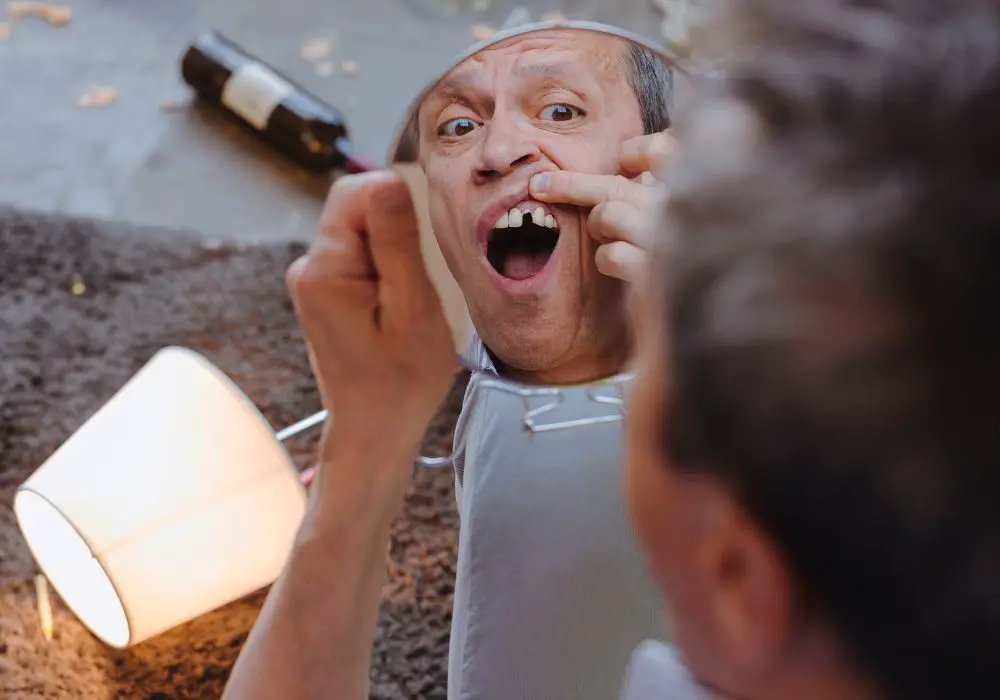
While you can survive losing all or most of your teeth, having missing teeth for many years can lead to some additional long term effects beyond just dental function:
- Nutrition issues – Long-term loss of chewing capacity from tooth loss limits food choice leading to nutritional deficiencies.
- TMJ disorders – Missing molars throw off your bite alignment which can lead to TMJ joint problems and pain.
- Low self-esteem – Tooth loss, especially front teeth, impacts personal image and confidence.
- Social isolation – Difficulty eating out and speaking clearly due to tooth loss causes some people to avoid social situations.
- Increased disease risk – Poor nutrition and inflammation from tooth loss is linked to higher risk of conditions like dementia.
Therefore, while you can live with very few original teeth, taking steps to replace or regenerate lost teeth provides significant benefits to long-term health, function and quality of life.
Options for replacing missing teeth
If you have lost multiple teeth, here are some potential options for replacing them and restoring your smile:
Removable partial or full dentures
- Acrylic based partial dentures to replace a few missing teeth
- Full upper and/or lower conventional dentures if all teeth are missing
- New flexible partials that have a softer feel
Dental bridges
- Spans gap from one or more missing teeth by attaching to adjacent natural teeth
- Less invasive than implants but does require shaping natural teeth
Dental implants
- Titanium posts surgically inserted into jawbone to replace tooth roots
- Support permanent crowns, bridges, or stabilize dentures
- Preserve bone and do not impact nearby teeth
All-on-4 dental implants
- Uses just 4 strategically placed implants on the upper or lower jaw to support non-removable prosthetic teeth
Teeth in a day
- Immediately places 4-6 dental implants and connects a temporary full arch of teeth in a single appointment
Talk to your dentist to determine the best options for replacing your particular missing teeth.
Maintaining any remaining natural teeth
If you already have missing teeth, it is critical to protect those you still have. Here are some tips:
- Maintain excellent oral hygiene – Brush properly twice and floss thoroughly once daily.
- See your dentist every 6 months for professional cleanings and checkups to catch issues early.
- Wear a custom nightguard if you grind your teeth to prevent wear and fractures.
- Eat a tooth-healthy diet low in sugary and acidic foods that cause decay.
- Avoid smoking and limit alcohol, both of which significantly raise cavity and gum disease risks.
Being proactive preserves your natural teeth and avoids further tooth loss and deterioration of function.
Key Takeaways
- You can live without many teeth, but a minimum of 10-12 well positioned teeth are advised for adequate function.
- Missing front teeth most impacts speech clarity while lost molars disrupt chewing capacity.
- Dentures can restore satisfactory chewing and aesthetics but do not fully replicate natural teeth.
- Long term tooth loss can negatively impact nutrition, systemic health, mental health and quality of life.
- Protecting your remaining teeth through good hygiene and diet is critical to avoid additional tooth loss.
Hope this more detailed article provides helpful perspective if you are dealing with partial or complete tooth loss. See your dentist right away if experiencing multiple missing teeth.
Frequently Asked Questions
How long can you actually go without any teeth?
You can survive a normal lifespan without any natural teeth as long as you have well-fitted full dentures for adequate chewing, nutrition and speech. However, most people find living for years with no original teeth extremely uncomfortable even with dentures. Having at least a few of your own teeth makes a significant difference for comfort and stability.
Will dentists sometimes remove all teeth and put in complete dentures?
Most dentists will try very hard to save and restore as many of your natural teeth as possible. Full clearance of all teeth is usually only done as an absolute last resort if the teeth are severely periodontally involved, decayed or damaged beyond reasonable repair. A thorough evaluation is always done first to see if some teeth can be saved before considering full extractions.
Can dentures really adequately replace your natural teeth functionality?
Dentures can restore satisfactory cosmetic appearance, chewing capacity and speech function when well made and properly fitted. However, they do not fully replicate all the advantages of your original natural teeth and jawbone. Dentures only provide about 25% of natural chewing force, lack periodontal proprioception, and do not halt continued jawbone loss after extractions.
Is it possible to live a normal life without your back molars?
It is possible to survive without your back molars but you will need to stick to a soft food diet without much chewing. Lack of molars prevents adequate grinding function necessary to break down food. You may also need speech therapy to compensate for changes in pronunciation. If possible, preserving even 1-2 molars per side will help maintain chewing capacity.
How important are wisdom teeth for overall dental function?
For most adults, wisdom teeth are expendable without much impact. As the last molars to erupt, they tend to crowd the mouth and become impacted. Removing them does not affect overall function. However, for some people wisdom teeth eventually replace 2nd molars lost earlier in life. So they can help preserve chewing function depending on your situation.

